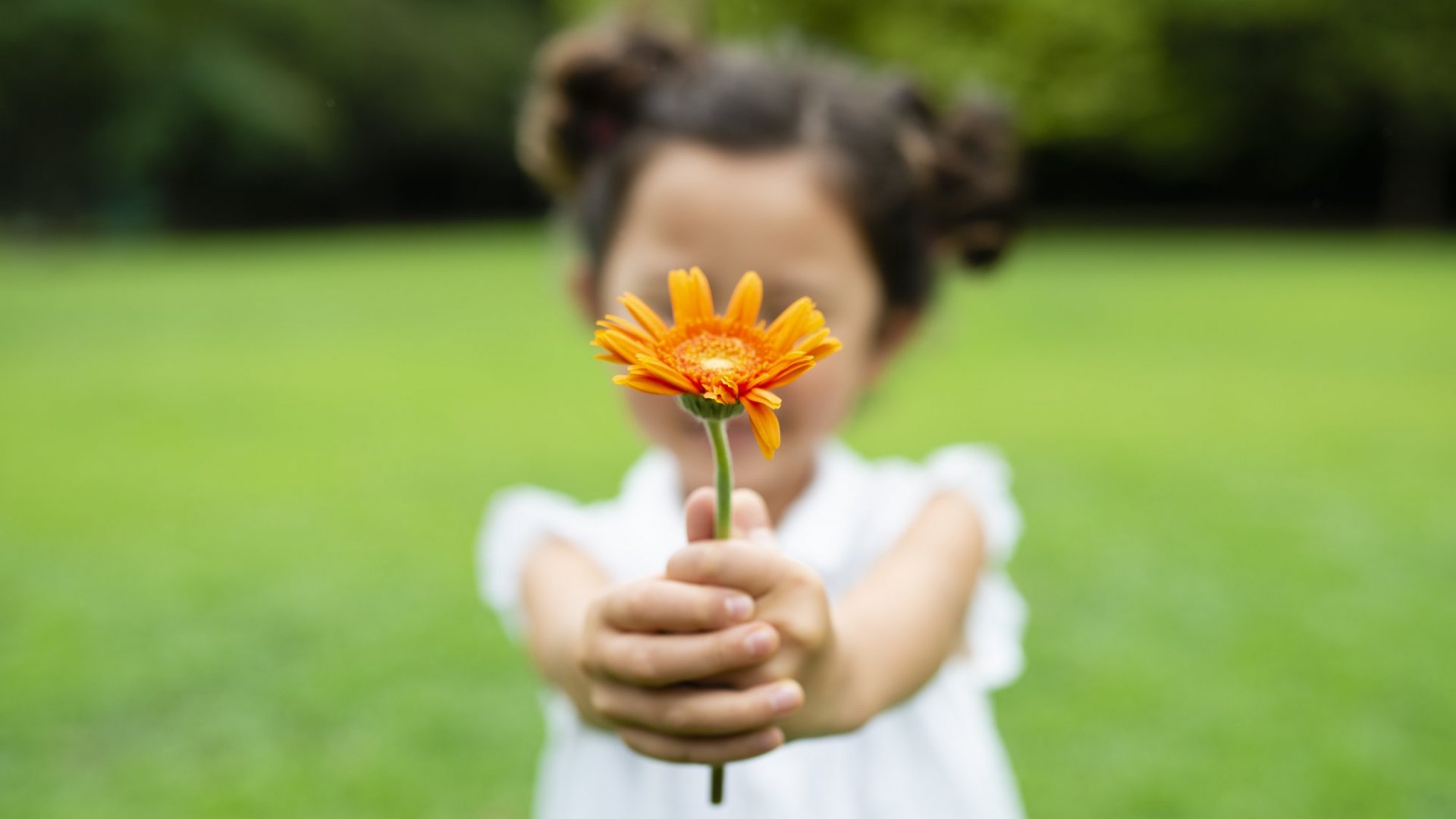
Gratitude is more than just saying "thank you." It's a powerful emotion that can transform lives. Did you know that practicing gratitude can improve your mental health, strengthen relationships, and even boost your immune system? Studies show that grateful people are happier and more satisfied with their lives. They sleep better, experience less stress, and have a more positive outlook. Imagine starting each day with a grateful heart. It can change how you see the world and how the world sees you. Ready to learn more? Here are 50 amazing facts about gratitude that might just inspire you to make it a daily habit.
The Science Behind Gratitude
Gratitude isn't just a feel-good emotion; it's backed by science. Researchers have delved into how gratitude impacts our brains and bodies.
- Gratitude activates the brain's reward system, releasing dopamine and serotonin, the "feel-good" chemicals.
- Practicing gratitude can improve sleep quality by reducing negative thoughts before bed.
- Studies show that grateful people have lower blood pressure and better heart health.
- Gratitude can enhance empathy and reduce aggression, making social interactions smoother.
- MRI scans reveal that gratitude can change the brain's neural structures, promoting a positive outlook.
Historical Perspectives on Gratitude
Gratitude has been valued across cultures and eras. Let's explore how different civilizations viewed this powerful emotion.
- Ancient Romans believed in the concept of "gratia," which emphasized kindness and thankfulness.
- In Hinduism, gratitude is a key component of "seva," or selfless service.
- Native American cultures often express gratitude through ceremonies and rituals to honor nature and ancestors.
- The Bible mentions gratitude numerous times, encouraging believers to give thanks in all circumstances.
- In Buddhism, gratitude is linked to mindfulness and compassion, essential for spiritual growth.
Psychological Benefits of Gratitude
Feeling thankful can do wonders for your mental health. Here are some ways gratitude can boost your psychological well-being.
- Gratitude can reduce symptoms of depression by shifting focus from negative to positive aspects of life.
- Keeping a gratitude journal has been shown to increase long-term happiness.
- Grateful people are more resilient, better able to cope with stress and adversity.
- Practicing gratitude can enhance self-esteem by reducing social comparisons.
- Gratitude fosters a sense of purpose and meaning in life, contributing to overall well-being.
Physical Health Benefits
Gratitude doesn't just make you feel good; it can also improve your physical health. Here are some surprising ways gratitude can benefit your body.
- Grateful people tend to exercise more regularly, leading to better physical health.
- Gratitude can boost your immune system, making you less susceptible to illness.
- People who practice gratitude report fewer aches and pains.
- Gratitude can improve your eating habits, encouraging healthier food choices.
- Practicing gratitude can lead to better sleep quality and duration.
Social Benefits of Gratitude
Gratitude can strengthen relationships and improve social interactions. Let's look at how being thankful can enhance your social life.
- Expressing gratitude can make you more likable and approachable.
- Grateful people are more likely to have strong, supportive social networks.
- Gratitude can improve romantic relationships by fostering mutual appreciation.
- Practicing gratitude can enhance teamwork and cooperation in group settings.
- Grateful people are more likely to forgive others, reducing conflicts and misunderstandings.
Gratitude in the Workplace
Gratitude isn't just for personal life; it can also transform your professional environment. Here are some ways gratitude can benefit your career.
- Grateful employees are more productive and motivated.
- Expressing gratitude can improve workplace morale and reduce turnover rates.
- Gratitude can enhance leadership skills by fostering a positive work culture.
- Grateful employees are more likely to receive promotions and recognition.
- Practicing gratitude can reduce workplace stress and burnout.
Ways to Cultivate Gratitude
Gratitude can be nurtured through simple practices. Here are some effective ways to incorporate gratitude into your daily life.
- Keep a gratitude journal, writing down three things you're thankful for each day.
- Practice mindfulness meditation focused on gratitude.
- Write thank-you notes to people who have made a positive impact on your life.
- Create a gratitude jar, adding notes of things you're grateful for and reviewing them regularly.
- Share your gratitude with others, expressing appreciation in person or through social media.
Gratitude and Children
Teaching children gratitude can set them up for a happier, more fulfilling life. Here are some ways to instill gratitude in young minds.
- Encourage children to say "thank you" regularly.
- Read books that emphasize the importance of gratitude.
- Involve children in acts of kindness and community service.
- Create a family gratitude ritual, like sharing what you're thankful for at dinner.
- Model gratitude by expressing your own thankfulness openly.
Cultural Expressions of Gratitude
Gratitude is expressed differently around the world. Let's explore some unique cultural practices related to gratitude.
- In Japan, people often say "itadakimasu" before meals, expressing gratitude for the food and those who prepared it.
- In Ghana, the Akan people have a tradition of "Aseda," a ceremony to give thanks to the gods and ancestors.
- In Mexico, "Dia de los Muertos" is a time to honor and thank deceased loved ones.
- In Thailand, the "Loy Krathong" festival involves floating lanterns to show gratitude to the water goddess.
- In South Korea, "Chuseok" is a harvest festival where families give thanks for the year's bounty.
Gratitude and Technology
Technology can help us practice gratitude in new and innovative ways. Here are some tech-savvy methods to stay thankful.
- Use gratitude apps to track and remind you of things you're thankful for.
- Share your gratitude on social media to inspire others.
- Join online gratitude communities to connect with like-minded individuals.
- Set daily gratitude reminders on your phone.
- Use digital photo albums to create visual reminders of moments you're grateful for.
The Power of Gratitude
Gratitude isn't just a feel-good emotion; it's a game-changer. Practicing gratitude can boost happiness, improve relationships, and even enhance physical health. Studies show that grateful people sleep better, have stronger immune systems, and experience less stress. Simple acts like keeping a gratitude journal or expressing thanks to others can make a big difference.
Incorporating gratitude into daily life doesn't require grand gestures. Small, consistent efforts can lead to lasting benefits. Whether it's appreciating a sunny day, thanking a friend, or savoring a meal, these moments add up.
Gratitude shifts focus from what's lacking to what's abundant. It fosters a positive mindset, making challenges easier to handle. So, take a moment each day to acknowledge the good. Your mind and body will thank you.
Was this page helpful?
Our commitment to delivering trustworthy and engaging content is at the heart of what we do. Each fact on our site is contributed by real users like you, bringing a wealth of diverse insights and information. To ensure the highest standards of accuracy and reliability, our dedicated editors meticulously review each submission. This process guarantees that the facts we share are not only fascinating but also credible. Trust in our commitment to quality and authenticity as you explore and learn with us.


